The Event
In honour of the anniversary of the 1990 anti-poll demonstration on March 31st, Spectacle hosted a free screening of Despite TV’s film Battle of Trafalgar. This was followed by an online Q&A with filmmaker Mark Saunders.
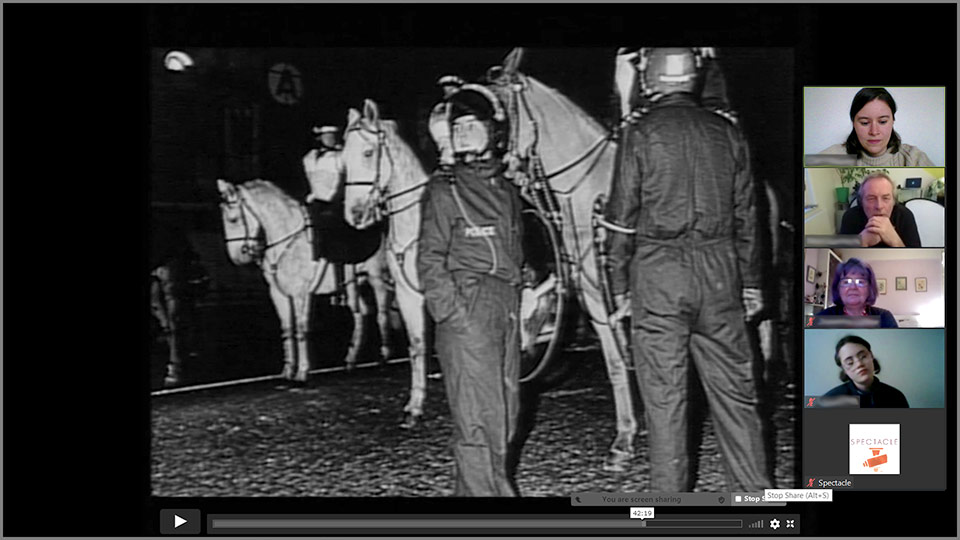
The discussion brought out the many ways that the public order policing tactics captured by the film are still in use and can readily be seen in the policing of the #KilltheBill protests against the Police, Crime, Sentencing and Court Bill, and recent public order policing at Clapham Common of the Sarah Everard Vigil.
The Protest and the Making of the Film
Despite TV was a filmmaking collective based in Tower Hamlets that operated through the 80s and 90s. Working as a co-operative, sharing resources, and making all editorial decisions through consensus, the collective published magazine videos.
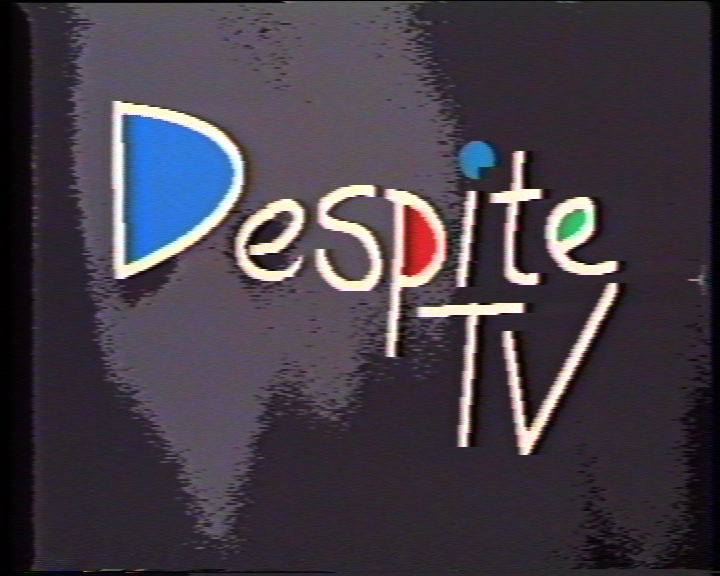
The main aim of Despite TV was to revert hierarchies commonly reproduced in the media industry, promoting video production as inclusive, non-hierarchical group activity, and shared authorship and editorial control. Everyone in the group, in fact, had access to equipment and initial training, could propose what to film, contributed to the technical realization of the initial ideas, and was co-director of the final films. In order to enhance participation and avoid the exclusion of marginal voices in the group, all decisions were taken by consensus and all tasks and roles -such as chairing meetings, but also interviewing, operating cameras, sound recording, or carrying out runner’s tasks- were shared in turns.
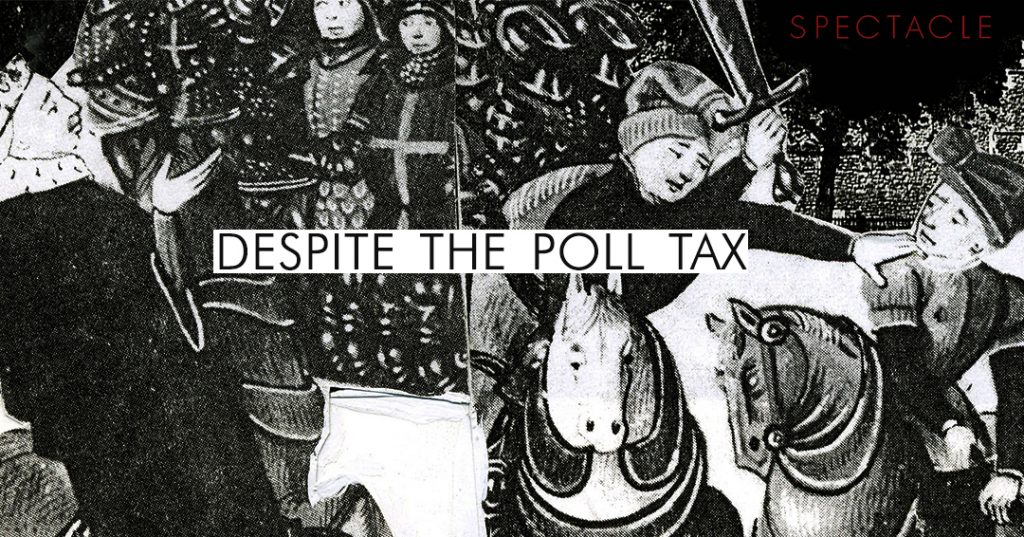
In 1990, Despite TV was working on a special issue on the poll tax called Despite the Poll tax. The proposed poll tax was despised throughout the country. It was a blatantly extortionate tax which required all individuals, regardless of wealth, to pay the same amount, and anti-poll tax chapters sprang up across the country. Despite the Poll Tax was not so much focused on the inequities of tax, but how the law would necessitate ID cards, which were the origin of infamous SA pass laws during aparthied. The tax would offer a great deal of social control and create a data blackmarket. The tax itself was therefore a colonial instrument. It was actually the second time that the British government had tried to institute such a tax. The first time was in the 14th century and led to a famous peasants revolt.
The magazine was nearly finished. Three camera crews went to the protest to get some shots for the end credits. They stationed one camera near the front, one in the middle, and one at the back. Their expectations for filming a peaceful joyous mass demonstration quickly went out the window.
Violence against protestors by the police left many bruised and bleeding. Hundreds were arrested. Police horses and vans repeatedly drove through the crowd, trampling people underfoot – all in the name of public order. However, none of this violence was reflected in the narrative on the evening news which depicted the demonstrators as violent and the police as responding to life or death violence.
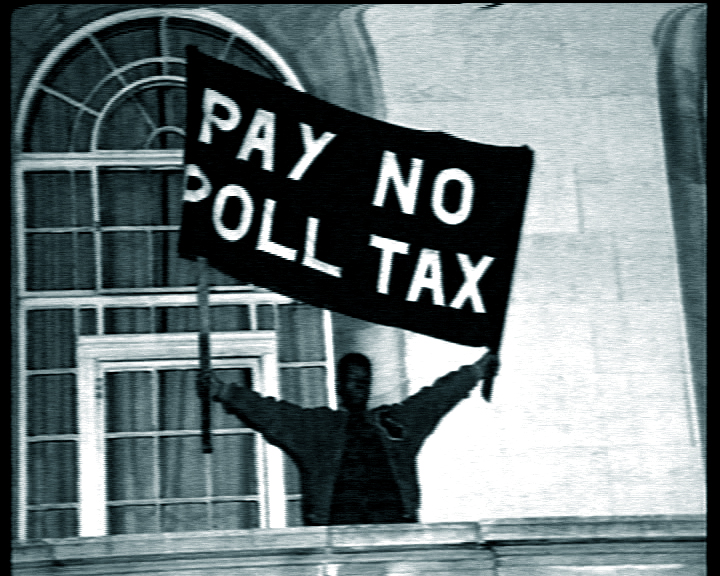
Despite TV managed to persuade Channel 4 to commission a film based on the footage to create a film showing the events in the order they really happened. The documentary was broadcast on Channel 4 in Sept 1990 and resulted in the upending of the accepted narrative of that day.
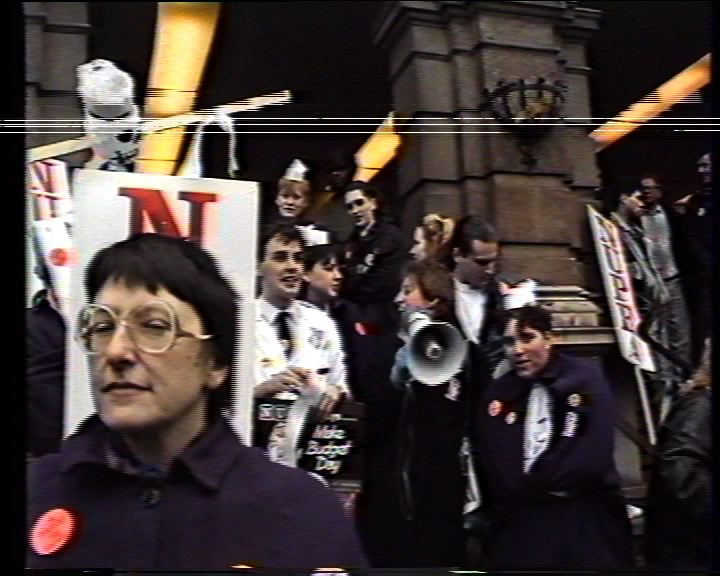
The film was also used in court as a part of a common defence of protestors who had been arrest that day, showing many were acting in legal self defence.
Connections to the Current Moment
In policing of public events in the last year including at the George Floyd BLM protests in 2020, Sarah Everard vigil at Clapham common, and Kill the Bill protests happening currently in Bristol.
In the Battle of Trafalgar we see police vans driving through crowds, and the same tactics were used in Brooklyn 2020. Police vans were driven into crowds of BLM protesters who were protesting the murder of George Floyd. The Battle of Trafalgar demonstrates that the police were not “out of control” but following a dangerous and near secret tactic which was very likely to cause a crowd to react violently. During the anti-poll tax demonstration, the film argues, the protesters gained no benefit from violence, but the state did benefit because it allowed them to paint all protestors as criminals.
This narrative is easily created when media sources uncritically present police statements as their only coverage of such protests. Again there is an uncanny similarity between the commentary of a mounted police woman in 1990 and one in 2021, both who claim to have never seen such violence directed at police in their entire lives.
The use of provocation by police including the use of vans, attacking women, collective punishment, kettling, creates a large dragnet of offenders and erases the divide between peaceful and violent protests. The criminalising of protesting creates an excuse for the use of violence which paints the entire cause (whether it be BLM or anti-tax demonstrations) to be viewed as criminal in the court of public opinion.
April 3rd – National Day of Action
The 3rd of April has been designated as a national day of action against the Police, Crime, Sentencing and Court Bill. Over 40 cities and counting across the UK will see #killthebill demonstrations, and they will be joined by those supporting the #ReclaimTheseStreets movement which grew from the murder of Sarah Everand and the policing of the vigils in her honour.
In the demonstrations the week before violence from the police in Bristol created headlines of “violence against police” and “rioting,” but, as in 1990s, from the point of view of those on the ground the papers seemed to have switched around the subjects and objects of their sentences.
It will be interesting to see what policing tactics will be employed and what narrative the media will offer after April 3rd.
Sign up to our Newsletter for more information about our ongoing projects.
Spectacle Homepage
Like Spectacle Documentaries on Facebook
Follow us on Twitter, Instagram, Vimeo, Youtube and Linkedin

